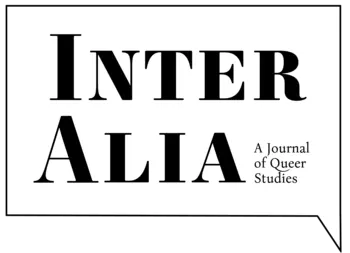https://doi.org/10.51897/interalia/RMIG3137
Nienormatywna rodzina heteroseksualna z dzieckiem – opresyjność roli
Urszula Kluczyńska
Uniwersytet Medyczny im. K. Marcinkowskiego w Poznaniu
Abstrakt:
Wobec funkcjonowania osób tworzących rodzinę – ich zadań i powinności – istnieje jedyne społecznie akceptowane, choć stereotypowe, oczekiwanie. Jest to wyobrażenie jednoznaczne: ktoś wchodzi w rolę kobiety/ żony/ matki, druga osoba (i nie inaczej) w rolę mężczyzny/męża/ojca. Rola jest określona i czytelna, każda odmienność jest traktowana jako patologia. Kategoria roli może być jednak opresyjna nie tylko w rodzinach nienormatywnych, ale również w heteroseksualnych. Rodzinę heteroseksualną z dzieckiem (społecznie postrzeganą jako norma) też można by określić mianem nienormatywnej, jeśli norma – tu: wypełnianie roli ojca przez mężczyznę i matki przez kobietę – nie jest wypełniana lub, jeśli ktoś woli, „jest zaburzona”. Pojawia się bowiem wówczas przekonanie o błędnym, wręcz dysfunkcyjnym oddziaływaniu rodziny. Celem jest zbadanie opresyjności kategorii roli (głównie kobiety/ żony/ matki/ i mężczyzny/ męża/ ojca) w odniesieniu nie tylko do alternatywnych form rodzinnych (przede wszystkim nieheteroseksualnych), ale głównie heteroseksualnych (z dzieckiem) i tego, co czyni je nienormatywnymi. Artykuł prezentuje analizę studium przypadku rodziny heteroseksualnej z dzieckiem, której członkowie nie realizują roli ojca/mężczyzny i matki/kobiety w sposób, który można by określić mianem normy. Co istotne, rodzina ta nie definiuje się jako taka (normatywna), gdyż dostrzega zderzenie z istniejącą normą w ramach własnej interpretacji bycia razem.
Słowa kluczowe: rodzina nienormatywna; rodzina heteroseksualna; opresyjność roli
Non-Normative Heterosexual Family with a Child: Role Oppression
Abstract
There is the stereotypical but socially accepted expectation as to the family notion: how it should be structured, how the tasks should be distributed and what functions each member of a family should perform. Social expectations are one-track and unambiguous: one person is to fulfil the role of a woman/wife/mother, and the other that of a man/husband/father. The divisions are clearly defined and every indication of diversity is treated as pathology. I assume that the category of role might be oppressive not only in non-normative families, but in all types, including heterosexual households. Heterosexual family with a child (perceived as norm by the society) might be described as non-normative if norm, i.e. social expectations of the way of fulfilling the role by the father and the mother – is not conformed to the way people see it. The main aim of this article is to denote role oppression (especially in the role of a woman/wife/mother and a man/husband/father) not only in alternative family types (especially homosexual ones,) but in heterosexual families with children as well. The article will try to examine what makes such families non-normative too. This is going to be an analysis of the case study of a heterosexual family with children, whose members do not assume the clearly defined roles of a man/father and a woman/mother, established as the norm. It is significant that the family described themselves as non-normative, because they notice the clash between the existing norm and their way of functioning.
Keywords: non-normative family; heterosexual family; oppressiveness of roles
